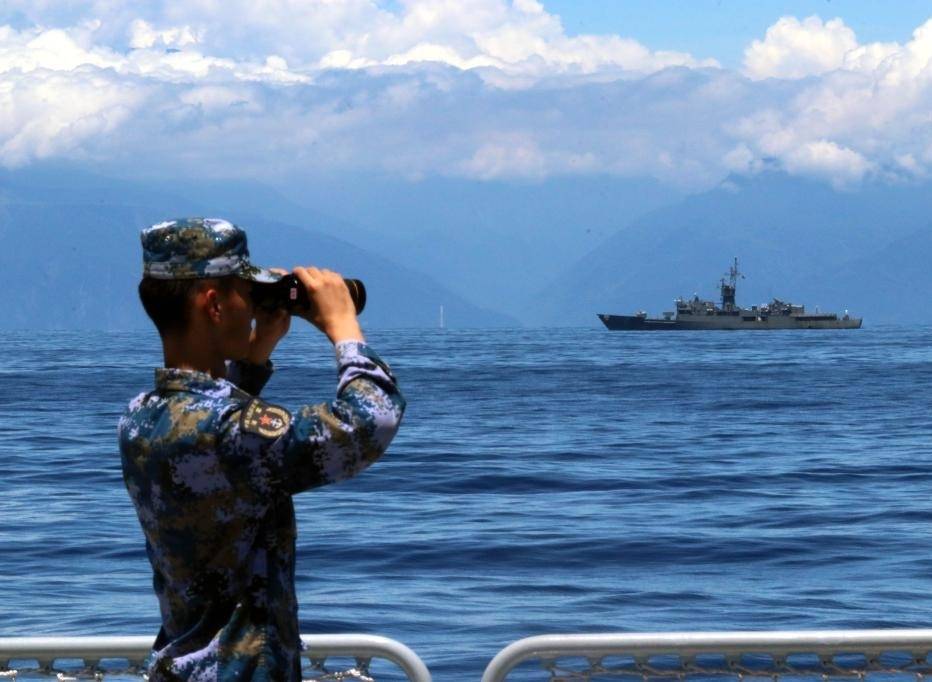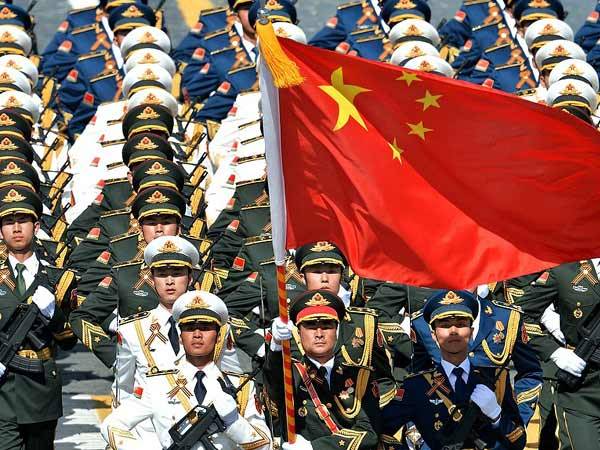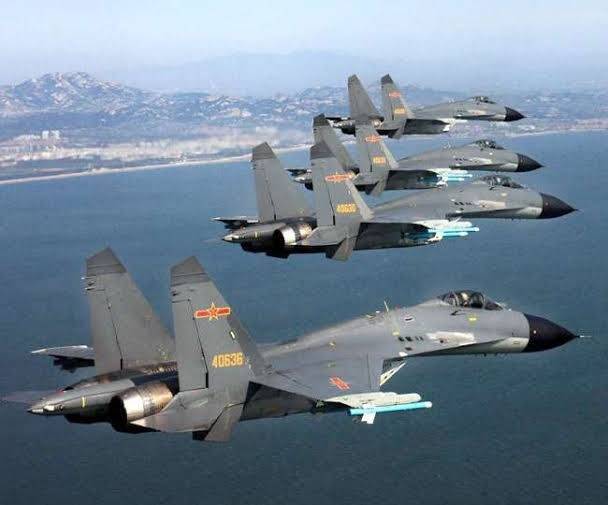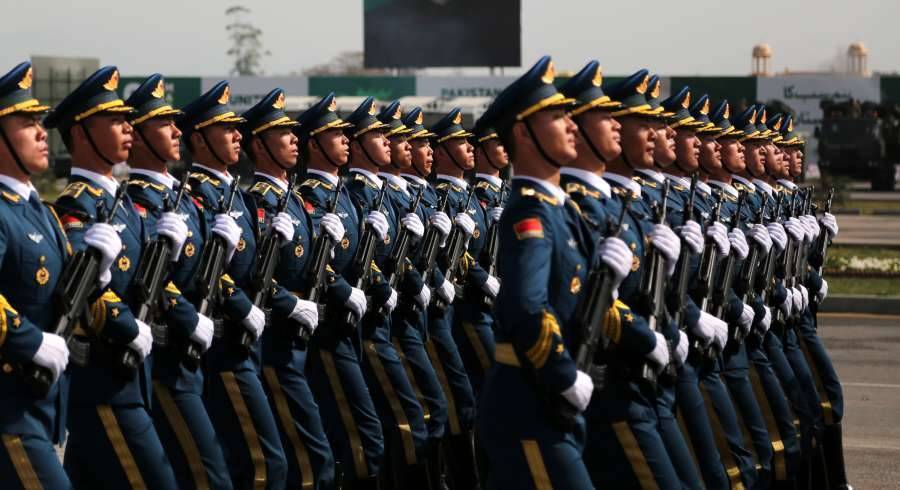Naturally, the PLA is all eyes and ears when it comes to scooping up lessons to be learned from Ukraine. Until now, it is mostly how not to conduct a war, as the Russian assault has turned into a debacle of the highest order….reports Asian Lite News
Many were shocked by Russia’s invasion of Ukraine on February 24, 2022, but not so by government and military officials in China and the US. Indeed, more than six months on from President Vladimir Putin’s greatest – and riskiest – gambit, China’s military has had plenty of time to digest lessons on how not to conduct an invasion of a neighbouring country.
This is critical because China has nefarious intentions for Taiwan, and what it learns from the Ukrainian “battle lab” could help it succeed where Russia has failed.
Senior Colonel Wu Qian, a Chinese Ministry of National Defence spokesman, said back in March that “Taiwan is not Ukraine” and that the underpinnings are quite different.
This is because, “Taiwan is an inalienable part of China’s territory, and the Taiwan question is purely Chin’s internal affair with zero-tolerance of external interference.”
However, Ian Easton, a Research Fellow at the Project 2049 Institute in the USA, correctly pointed out that, instead, “Taiwan is an independent and sovereign country that has never been part of the territory ruled by the People’s Republic of China.”
Nevertheless, the People’s Liberation Army (PLA) officer Wu insisted, “The two sides across the Taiwan Strait must be and will be reunified. It is the trend of history that can never be stopped by anyone or any force.”
Easton responded by saying, “‘Peaceful unification’ is a Chinese Communist Party (CCP) euphemism that refers to the subversion and coerced annexation of Taiwan’s government.
It’s a seemingly benign phrase that, in reality, describes the destruction of a nation-state that is ranked among the top ten democracies in the world.”
Wu further stated: “It is perfectly justified for China to safeguard its national sovereignty and territorial integrity, and allow no external interference … The Chinese PLA stands ready to take all necessary measures to resolutely respond to any provocative actions that endanger China’s core interests or undermine the peace and stability across the Taiwan Strait.”

Unfortunately, Beijing’s arrogant claim to all of Taiwan, and its global isolation and ostracism of the peace-loving democracy, are backed up by a willingness to use both covert and overt measures to change the status quo and take control of Taiwan.
Alarmingly, Easton warned, “The PRC is engaged in the largest peacetime military build-up undertaken by any country in over a century. Chinese military officers writing in authoritative documents describe the United States as their main enemy and portray the conquest of Taiwan as their number one mission.”
Naturally, the PLA is all eyes and ears when it comes to scooping up lessons to be learned from Ukraine. Until now, it is mostly how not to conduct a war, as the Russian assault has turned into a debacle of the highest order.
Currently, the front in northeast Ukraine has crumbled, and Russian troops have fled in panic. The latest reports state that Ukrainian troops had driven all the way to the border with Russia in Kharkiv Oblast.
After being forced to retreat from Kyiv early on in the conflict, Russian troops have also fled in disarray from places like Izyum in the northeast. This spectacular failure of Russia’s “special military operation” will provide lessons for years to come.
Doctor Joel Wuthnow, a Senior Research Fellow at the Centre for the Study of Chinese Military Affairs, at the Institute for National Strategic Studies of the National Defence University in Washington DC, has explored lessons that China and the PLA might pick up as it contemplates a future invasion of Taiwan.
In a report entitled “Rightsizing Chinese Military lessons from Ukraine”, Wuthnow noted that PLA writings and research have been almost non-existent on the topic so far. Of course, the PLA must distance itself from the mistakes that Russia made, and come up with solutions to the strategy, tactics and weapons that Ukraine is employing. Wuthnow made three assumptions. The first is that PLA decision-makers are teachable.
This might be true, as seen in the force’s reaction after the USA and allies decimated Iraq in the 1990-91 Gulf War. However, today’s PLA commanders might be less flexible or open to change than their predecessors.

Wuthnow proffered several arguments for this possibility, such as the Ukraine scenario being very different to a Taiwan one.
Another is that the PLA may be more arrogant now and more confident in its capabilities. A third is “cognitive dissonance”, where the PLA’s approach over the past three decades may have inadvertently produced intellectual blinders that harm its ability to adapt.
The Central Military Commission’s make-up will change after the 20th National Party Congress later this year, and it is likely to have members that have no combat experience whatsoever.
The second assumption that Wuthnow made is that the PLA possesses a rational strategic planning process. This will determine whether any lessons drawn from the Ukraine conflict will actually alter how the PLA trains or operates.
It should be remembered that the PLA is highly hierarchal and resistant to change, which is why Chairman Xi Jinping had to take it by the scruff of the neck and enforce structural changes.
There is a danger that each PLA service will simply focus on lessons that reinforce what it already believes. The PLA Air Force, for example, might argue that it needs more funding to suppress enemy air defences, or the ground forces might demand more troops after Xi cut numbers by 300,000. The third assumption is that adaptation will influence China’s decision-making calculus.
This is connected to the CCP’s appetite for risk. Even if the PLA modifies its doctrine or force posture, would China’s leaders still be keen to attack Taiwan?
In the short term, Xi might take fewer risks until the lessons of Ukraine are fully understood. In the longer term, he might be more confident if the PLA shows itself to have absorbed vital lessons. China knows that conflict will greatly impact its economy, even as it struggles with social and economic issues at home.
China shows no sign of backing off, however. In the wake of US House Speaker Nancy Pelosi’s visit to Taiwan, China has normalized military aircraft crossings over the Taiwan Strait median line. That tacit demarcation had served as a buffer against provocation or accident for decades, but now China has deliberately abandoned it.
With the CCP remaining so opaque, Wuthnow rightly warned: “In sum, while the PLA is observing Russian operations in Ukraine, its ability to distil and act on lessons from that conflict depends on internal variables such as perceptions, processes and leadership priorities. Analysts should thus be careful about making predictions, even if the lessons seem logical for China, and look for signs that their assumptions are correct.”
Specific lessons that China is learning from Russia’s murderous escapade may be divided into two broad categories of reinforcing lessons and pivotal lessons, according to Wuthnow. The former confirms what the PLA is already doing and planning, while the latter is items that may require the PLA to move in a new direction.
As for reinforcing lessons, the most common takeaway that foreign experts highlight as being important for the PLA is perfecting joint operations. The PLA knows their importance, as typified by the move to five joint theatre commands in 2015, even if it has a long way to go and it is very difficult to achieve on a contested battlefield.
Furthermore, it is expected that China will conduct nuclear signalling (e.g. perform launch exercises, and raise alert levels) to prevent the USA from intervening in any PLA assault on Taiwan. Moscow prevented the USA from putting troops on the ground in Ukraine, but regardless the USA has provided copious amounts of equipment.
China also wishes to achieve the “three dominances”, superiority in the information, air and sea domains, before beginning amphibious landings. Russia was using unencrypted communications, failed to electronically degrade Ukrainian command and control, and inadequate missile stockpiles, and the PLA looks poorly on such a lack of professionalism.
Nor could Russia silence President Volodymyr Zelenskyy in Ukraine, so Beijing will want to decapitate and remove Taiwan’s leadership at the outset of its war. This would also help reduce foreign aid. China already has a mock-up of Taipei’s presidential palace for PLA training.
Morale is critical too. Russian soldiers, many of them conscripts, simply do not want to fight in Ukraine. The CCP will therefore redouble political work to indoctrinate PLA soldiers into the necessity of conquering Taiwan. Unlike Russia, China will surely be more successful in controlling social media and any anti-war sentiments too.
Another lesson for China is the importance of skilled military leaders in the enlisted ranks and officer corps. Also important is ensuring logistics and maintenance support.
This will be far more challenging for the PLA than for Russia, as it must support troops fighting up to 180km away across the Taiwan Strait. The second aforementioned category for the PLA to learn from Ukraine is pivotal lessons.
Wuthnow suggests three potential lessons here, “A re-examination of whether the ground forces’ brigade and battalion model is suitable for high-intensity conflict against a committed adversary; Chinese attempts to learn from Russia’s failure to mask preparations for conflict and therefore degrade foreign indications and warnings; and the re-examination of assumptions that a regional conflict, especially over Taiwan, could be limited in duration and scale, and thus potentially necessitate preparation for protracted conflict.”

The PLA has already streamlined its ground forces, with combined-arms brigades replacing divisions. Russia relies on battalion tactical groups, very similar to Chinese combined-arms battalions, but these have been found wanting.
Problems in these smaller manoeuvre units such as overwhelmed commanders, insufficient specialist staff, inadequate air defence coordination and limited logistics all reared their heads in Ukraine.
Russia gathered its troops along Ukraine’s borders under the pretext of an exercise, but China will have to execute far better than that if it is to disguise an invasion of Taiwan. It will be more difficult for China given the amount of aircraft and ships needed.
Deception is important, and the PLA would also have to decide how long an extended missile bombardment is needed to sufficiently degrade the enemy, or whether a barrage would be simultaneous with an ongoing “exercise” to delay political decisions in Taipei and Washington DC.
Although it had numerical and material superiority, Russia failed to achieve a swift victory. China would always hope for a rapid conquest of Taiwan so as to reduce military and economic costs, and to prevent a coalition of support from forming.
Yet Taiwan is a mountainous country and the PLA would find it difficult to conquer the ground. The PLA might have to rethink things in light of Ukraine’s robust defence as people fight for their homeland.
Politically, China might also have to rethink its belief that European and Asian countries would remain neutral. Ukraine has shown that this might not be the case.
Wuthnow concluded, “…In at least a few areas, there is a chance that China will learn pivotal lessons that will allow it to avoid Russia’s mistakes. These would include ground force reforms to reduce the vulnerability of combined-arms battalions to withering strikes, sophisticated deception plans integrated into a landing campaign, and different assumptions and planning for a conflict that neither ends in a short timeframe nor involves only a minimal number of opponents.”
“Such lessons could improve China’s capabilities as well as its confidence and complicate some of the tools that were available to the defence in countering Russian operations in Ukraine, such as effective use of Javelins…, declassification of intelligence for use in information operations, and efforts to expand the conflict beyond the aggressor’s capacity and comfort level. PLA adaptation, if it does occur, will take time, thus offering the United States, its allies and Taiwan an opportunity to make improvements to retain advantages for the defence that existed in Ukraine.” (ANI)

